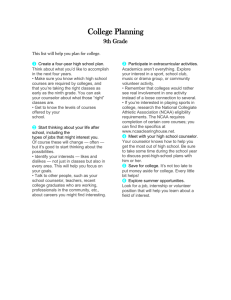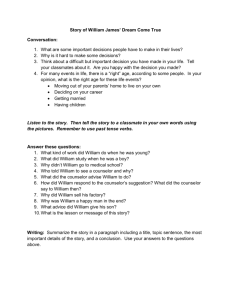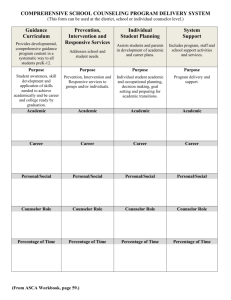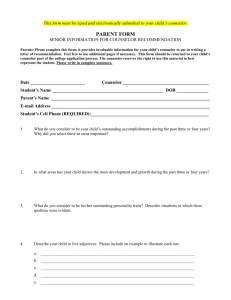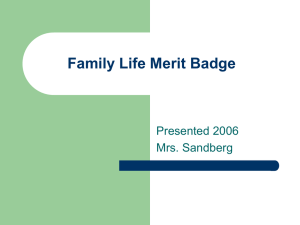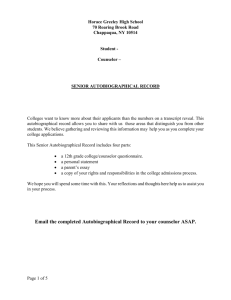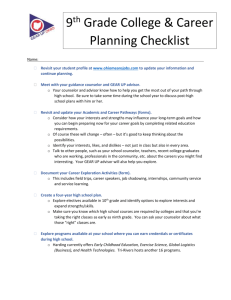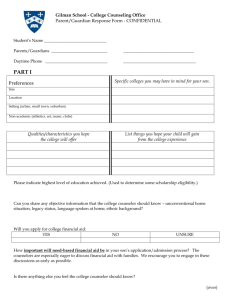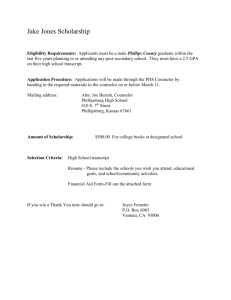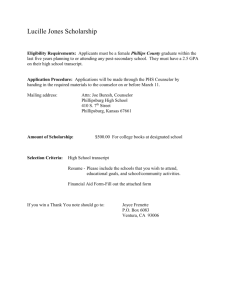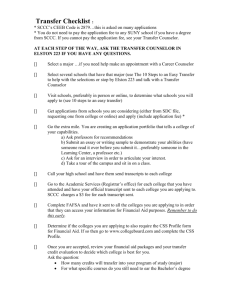A Planning List for 9th and 10th Grade Parents
advertisement
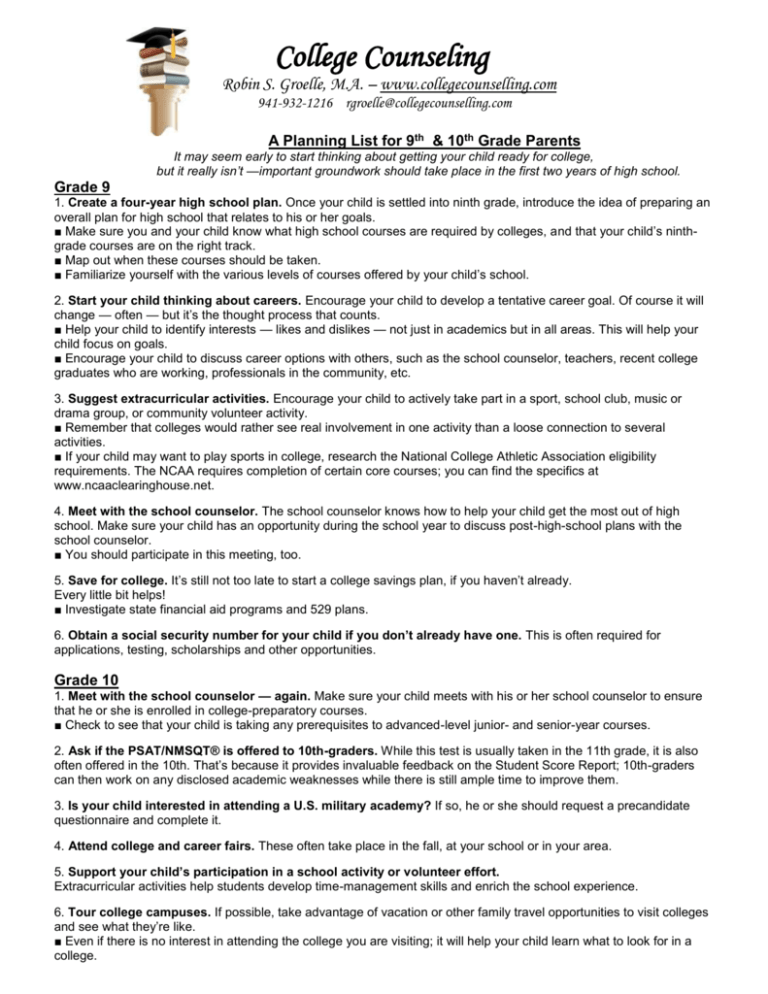
College Counseling Robin S. Groelle, M.A. – www.collegecounselling.com 941-932-1216 rgroelle@collegecounselling.com A Planning List for 9th & 10th Grade Parents It may seem early to start thinking about getting your child ready for college, but it really isn’t —important groundwork should take place in the first two years of high school. Grade 9 1. Create a four-year high school plan. Once your child is settled into ninth grade, introduce the idea of preparing an overall plan for high school that relates to his or her goals. ■ Make sure you and your child know what high school courses are required by colleges, and that your child’s ninthgrade courses are on the right track. ■ Map out when these courses should be taken. ■ Familiarize yourself with the various levels of courses offered by your child’s school. 2. Start your child thinking about careers. Encourage your child to develop a tentative career goal. Of course it will change — often — but it’s the thought process that counts. ■ Help your child to identify interests — likes and dislikes — not just in academics but in all areas. This will help your child focus on goals. ■ Encourage your child to discuss career options with others, such as the school counselor, teachers, recent college graduates who are working, professionals in the community, etc. 3. Suggest extracurricular activities. Encourage your child to actively take part in a sport, school club, music or drama group, or community volunteer activity. ■ Remember that colleges would rather see real involvement in one activity than a loose connection to several activities. ■ If your child may want to play sports in college, research the National College Athletic Association eligibility requirements. The NCAA requires completion of certain core courses; you can find the specifics at www.ncaaclearinghouse.net. 4. Meet with the school counselor. The school counselor knows how to help your child get the most out of high school. Make sure your child has an opportunity during the school year to discuss post-high-school plans with the school counselor. ■ You should participate in this meeting, too. 5. Save for college. It’s still not too late to start a college savings plan, if you haven’t already. Every little bit helps! ■ Investigate state financial aid programs and 529 plans. 6. Obtain a social security number for your child if you don’t already have one. This is often required for applications, testing, scholarships and other opportunities. Grade 10 1. Meet with the school counselor — again. Make sure your child meets with his or her school counselor to ensure that he or she is enrolled in college-preparatory courses. ■ Check to see that your child is taking any prerequisites to advanced-level junior- and senior-year courses. 2. Ask if the PSAT/NMSQT® is offered to 10th-graders. While this test is usually taken in the 11th grade, it is also often offered in the 10th. That’s because it provides invaluable feedback on the Student Score Report; 10th-graders can then work on any disclosed academic weaknesses while there is still ample time to improve them. 3. Is your child interested in attending a U.S. military academy? If so, he or she should request a precandidate questionnaire and complete it. 4. Attend college and career fairs. These often take place in the fall, at your school or in your area. 5. Support your child’s participation in a school activity or volunteer effort. Extracurricular activities help students develop time-management skills and enrich the school experience. 6. Tour college campuses. If possible, take advantage of vacation or other family travel opportunities to visit colleges and see what they’re like. ■ Even if there is no interest in attending the college you are visiting; it will help your child learn what to look for in a college.
